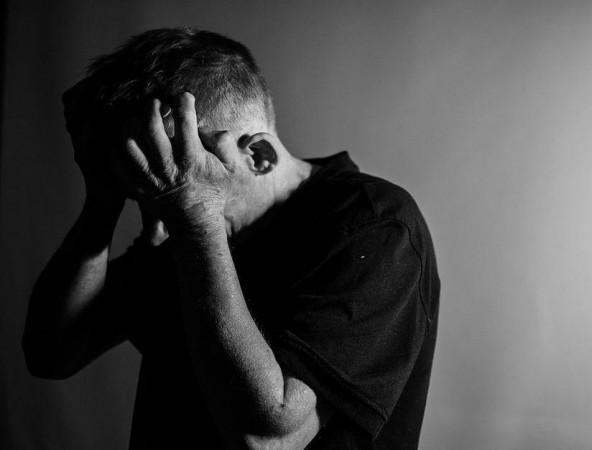When one is asked to describe someone dealing with trauma, there is only one image that often comes to mind: a lone individual drowning a drink at the bar. While clichéd, this imagery highlights the link between trauma and alcohol dependence.
Several Individuals with post-traumatic stress disorder (PTSD) develop alcohol use disorder (AUD). Providing hope for the severing of this connection, scientists have identified drugs that could help in preventing the concurrence of the two disorders.
In a new multi-institutional study, researchers have shown that two drugs–benztropine and SAFit2–can lessen alcohol consumption arising from PTSD. Through an animal model of PTSD, the authors demonstrated that the two compounds reduced alcohol preference and intake, along with a decrease in behaviours associated with PTSD, such as aggression, fearfulness, and hyperarousal. The tested drugs achieved this by inhibiting FKBP5 (FK506-binding protein 51), a protein found in the brain.
"The overlap of PTSD and AUD is a major problem. We've shown that there is potential to alleviate both disorders by targeting brain pathways that they share," said Dr. Marisa Roberto, co-senior author of the study, in a statement. The findings were published in the journal Neuropsychopharmacology.
Overlapping of Disorders

PTSD is a psychiatric disorder characterised by an individual's difficulty or inability to recover from a traumatic event. Some of the damaging experiences that give rise to the disorder are sexual abuse, participation in war or combat, natural disasters, and loss of loved ones, among others. PTSD is prevalent in around 4 percent of the global population. If left unaddressed, the disorder can become debilitating and severely affect the quality of the sufferer's life.
Commonly, known as alcoholism, AUD is characterised by excessive consumption of alcohol and a preoccupation with it. Individuals with AUD develop an emotional and physical dependence on alcohol and experience a general decline in functionality. Unfortunately, while AUD in itself is a crippling disorder, it is often found in conjunction with PTSD in several individuals.
According to certain estimates, about 75 percent of people with PTSD report drinking problems–a result of reliance on alcohol to cope with trauma. Furthermore, individuals struggling with both PTSD and AUD are at greater risk of extreme aggression and suicidal thoughts when compared to those with only one of these disorders. Studies have shown that FKBP5 plays a crucial role in the progression of psychiatric disorders–a link that holds good for AUD and PTSD as well.

The FKBP5 gene–that encodes the namesake protein–regulates the brain's stress response pathways. However, the gene and its variants are also associated with the increased risk of psychiatric conditions in individuals exposed to trauma. Elevated levels of FKBP5 have been connected to both alcohol and stress exposures in animals (in studies). Thus, treatments targeting FKBP5 could help in the management of AUD and PTSD.
Very Human Expression
Through the current research, the team investigated the role of alcohol and stress on the sensitivity to drugs inhibiting FKBP5. For this, they first examined rats with symptoms that were similar to comorbid PTSD and AUD in humans. It was found that the animals shared several behavioural attributes with humans suffering from the two disorders. Not only did they consume more alcohol than average, but they were also fearful and irritable. They exhibited sleep disturbances and anxiety as well.
Following this, the scientists treated the rodents with either drug targeting FKBP5: benztropine and SAFit2. While benztropine–an FDA-approved drug known to target several molecules in the brain–is used to treat Parkinson's disease, SAFit2 is an experimental compound that is engineered to block FKBP5 specifically.
Showing Promise for Treatment

The authors discovered that benztropine led to a decrease in alcohol preference in stressed rats of both sexes and minimised aggressive behaviour in females. Showing equally encouraging results, SAFit2 lowered the consumption of alcohol in stressed males and reduced the levels of extreme fear among both male and female rats. Importantly, neither of the drugs was found to impact sleep.
"The results may have varied between male and female animals because of reproductive hormones. There is new literature suggesting that the activity of these kinds of compounds varies in females throughout the estrous cycle," stated Dr. Bryan Cruz, co-first author of the study.
According to the team, benztropine's status as an FDA-approved drug can make its repurposing for the treatment of PTSD easier. Dr. Eric Zorrilla, co-senior author of the study, concluded: "We think FKBP5 inhibitors might be useful in preventing AUD after the onset of PTSD. More work is needed to determine whether these compounds also can prevent the recurrent relapse that hampers recovery."

















